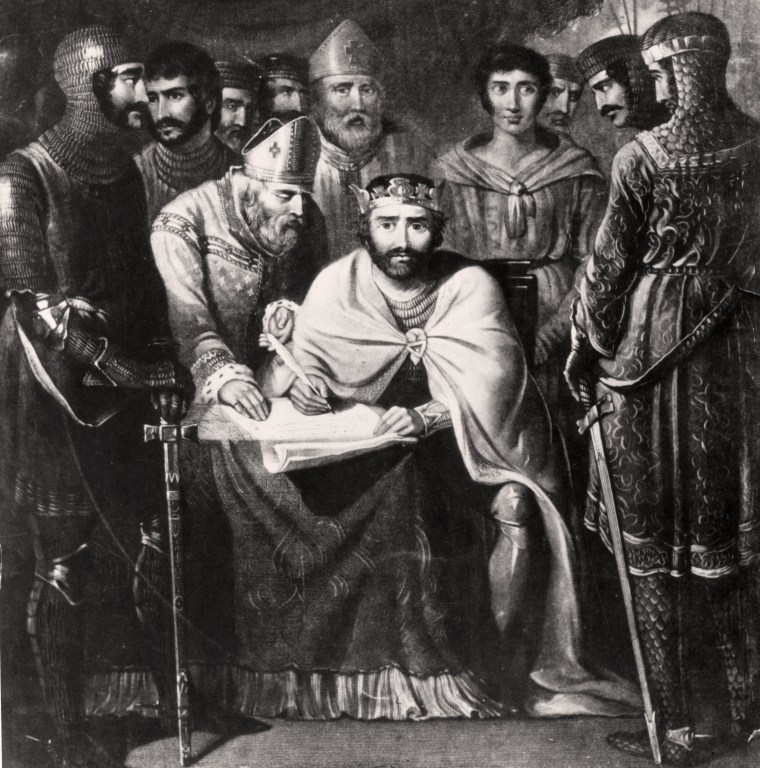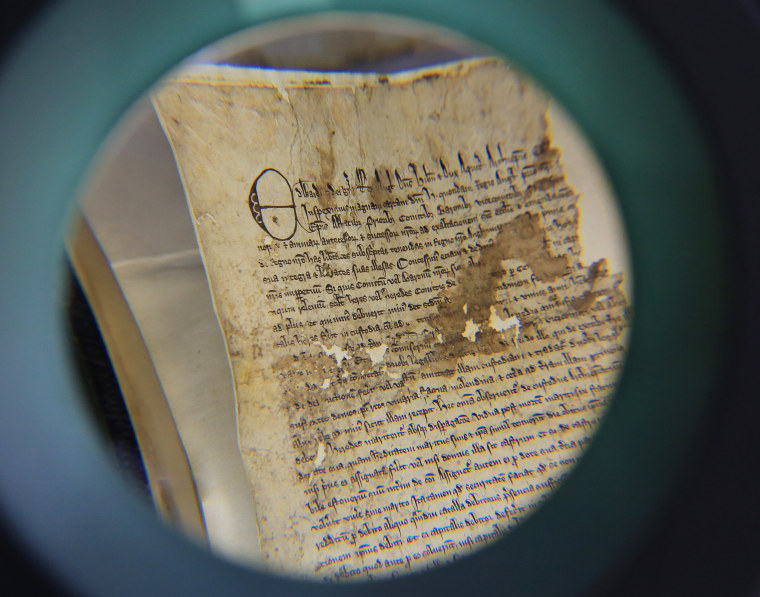LONDON — Britain is this month celebrating the 800th anniversary of Magna Carta, a document more than three times as old as the United States that established many principles of Western democracy. But what exactly is this historic charter, how did it come into being, and why is it so important to modern life in America? Here's everything you need to know:
1 — Magna Carta — meaning "Great Charter" in Latin — paved the road to modern democracy, granting every citizen individual freedoms and laying the foundation for constitutional rights and parliament. The American Constitution and Bill of Rights were both based upon principles laid out in the charter. "Magna Carta has influenced generations around the world and across the centuries," said Julian Harrison, historian at the British Library in London. "It was used by Thomas Jefferson when he established the Declaration of Independence and quoted by Nelson Mandela at his trial in 1964."
2 — The charter was the first document declaring that the king or queen had to abide by the laws of the land. Exactly 800 years ago, in June 1215, feudal barons gathered outside London to define and limit the powers of King John, forcing him to affix his royal seal to the charter. As Harrison explained: "It is the foundation of the rule of law. Magna Carta established for the first time that everybody was subject to the law, and that nobody, not even the king, was above that law." It was also the foundation of human rights. "Nobody should be able to compromise the demand of justice because that is what we build peace on in our world," said the Very Reverend June Osborne of Salisbury Cathedral.

3 — Trial by jury was defined in Magna Carta. The document states that "no free man shall be seized or imprisoned, or stripped of his rights or possessions, or outlawed or exiled." It said no person should be "deprived of his standing in any way, nor will we proceed with force against him," except under the judgment of the law of the land. "What Magna Carta says is justice should not be corrupted, sold or traded," said Osborne.
4 — Due process was defined in Magna Carta to prevent King John from prosecuting people unless they had broken laws. The Fifth Amendment of the Constitution, saying all citizens cannot be deprived of "life, liberty, and the pursuit of happiness," echoes the centuries-old Magna Carta resolutions. "There is a heritage … the narrative of what it represents is the control of power and the ability to live free," Osborne said.
5 — Magna Carta stated that the king could only punish people "in accordance with the gravity of the offense." The charter defined the very basic democratic principle that no one can be subjected to cruel and unusual punishment. "The talk about equality and justice for all is the fundamental message about the human race across the globe," according to Osborne.
